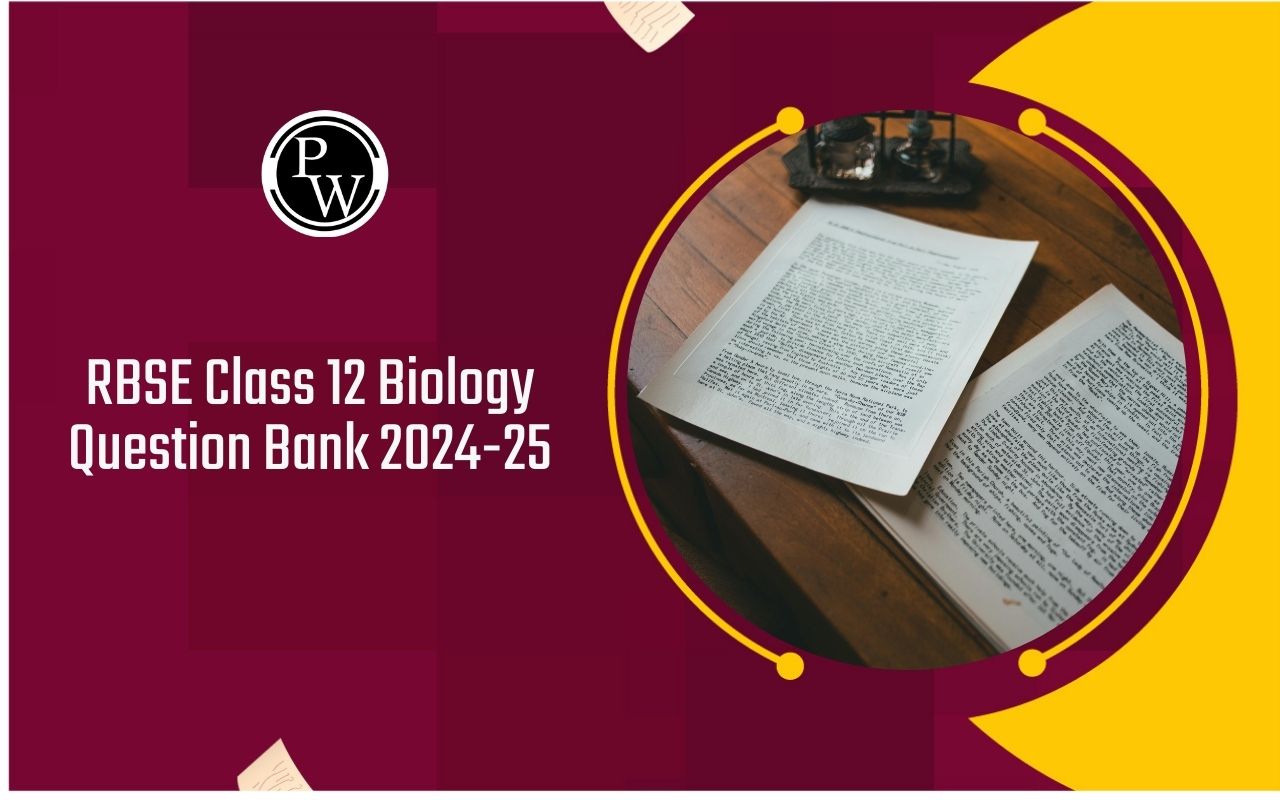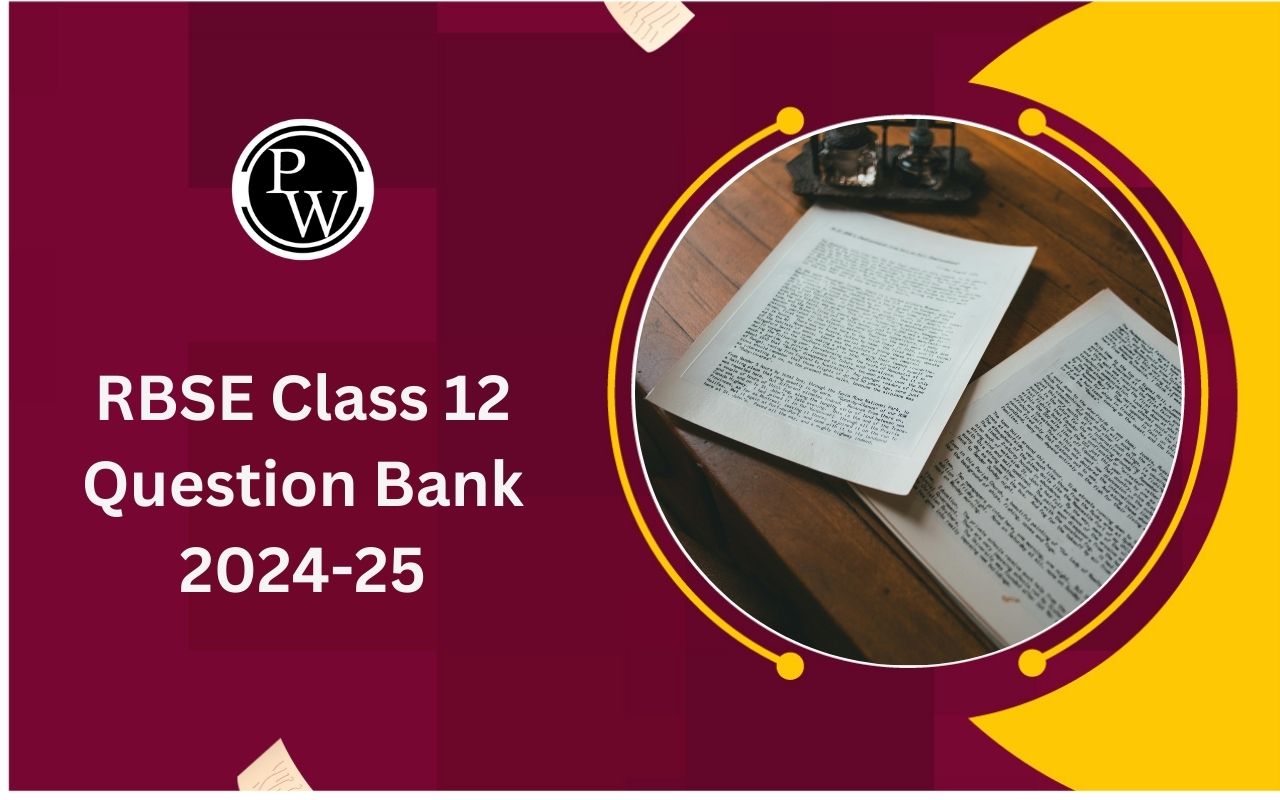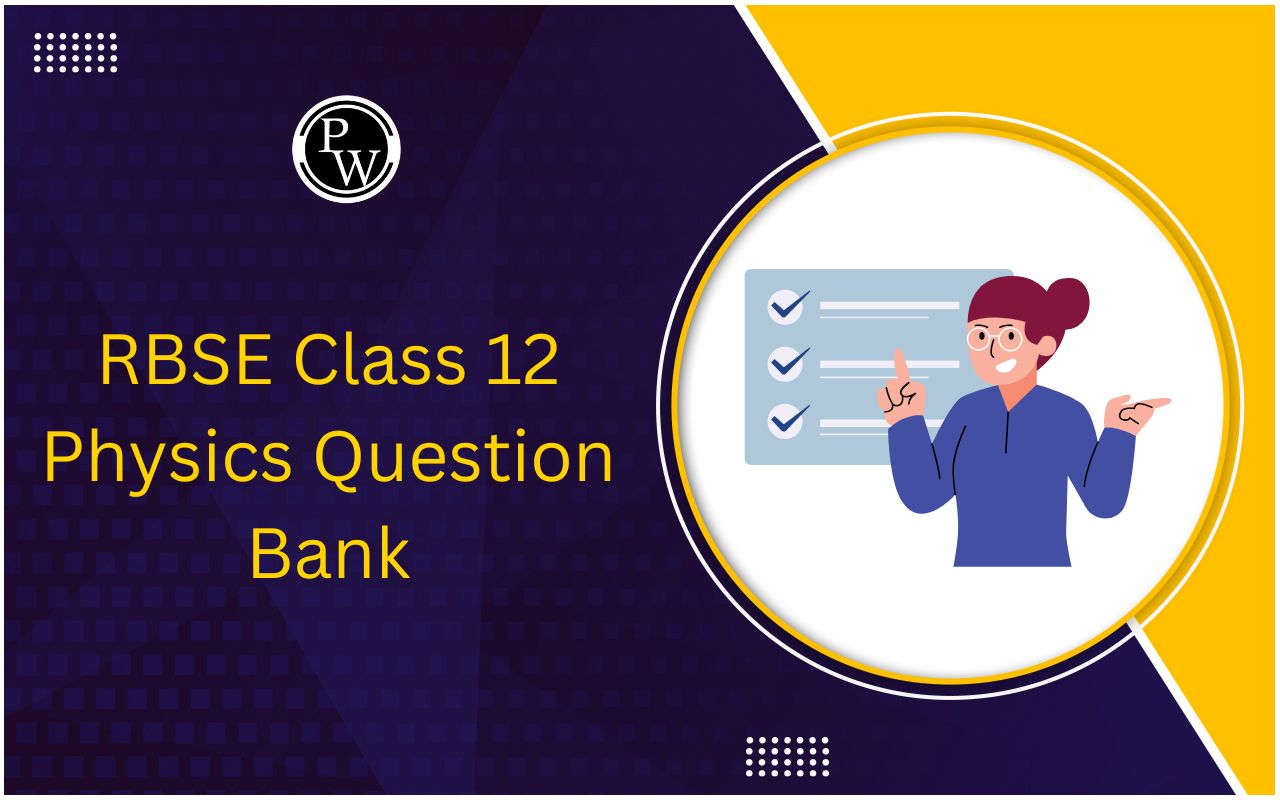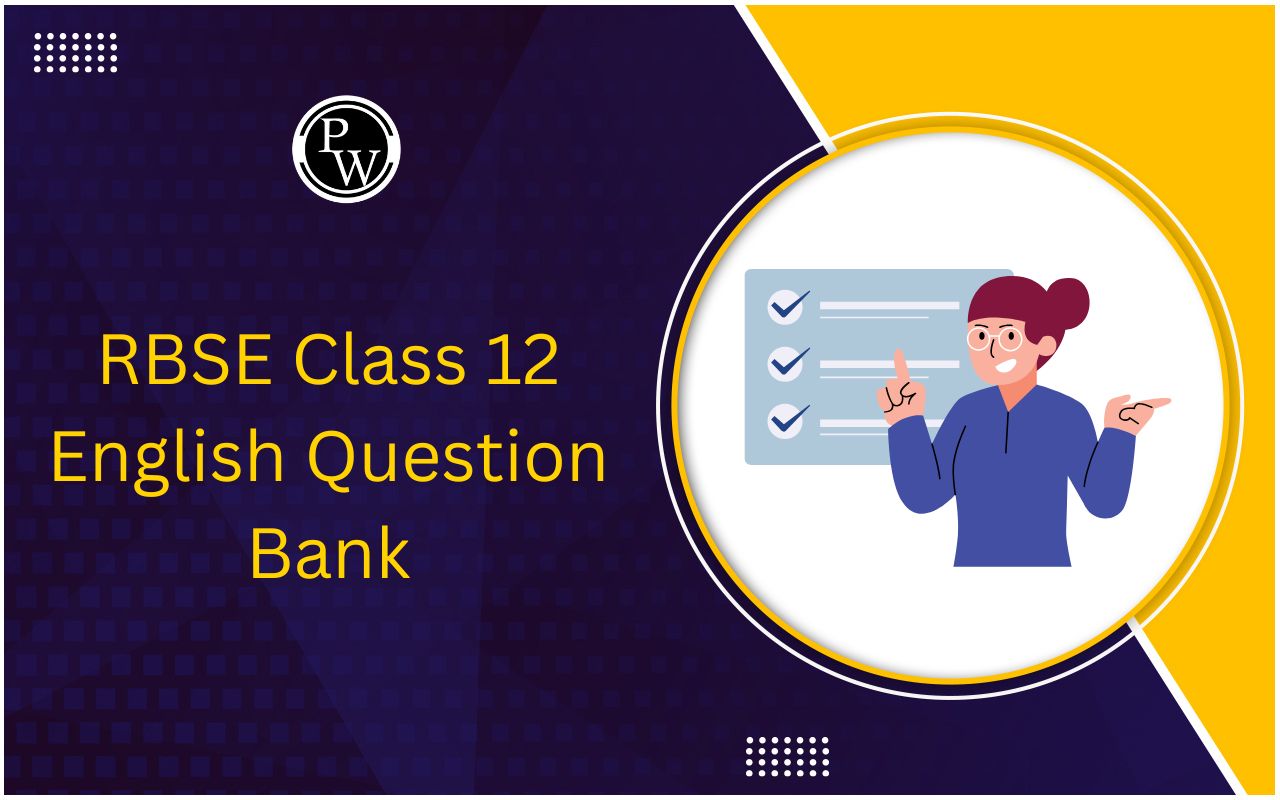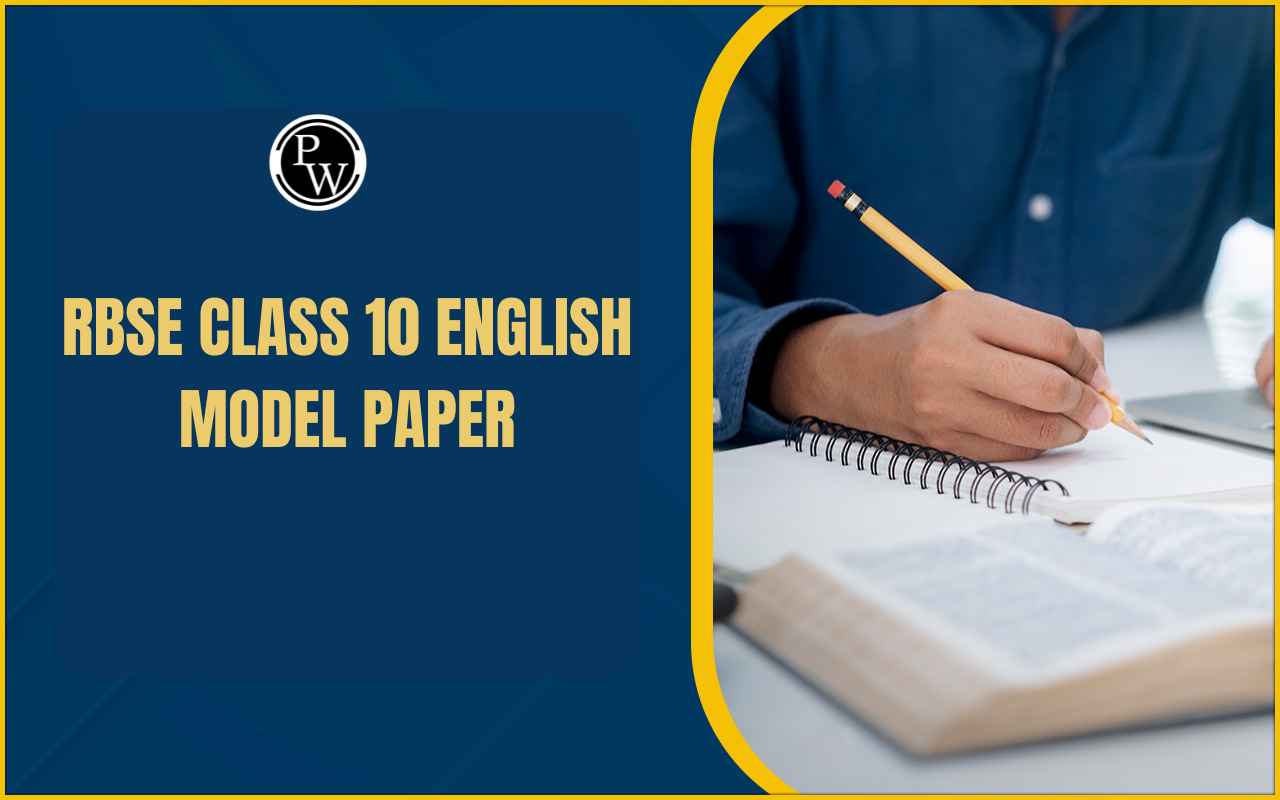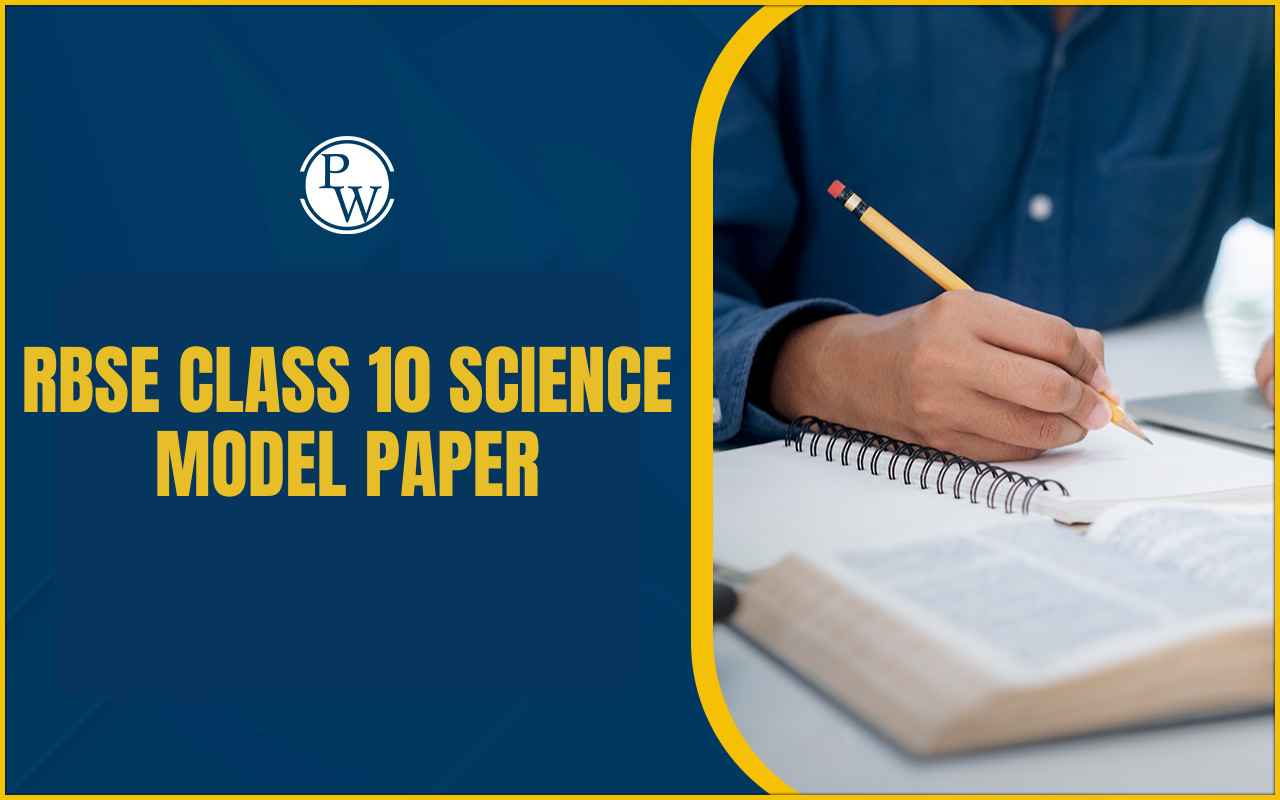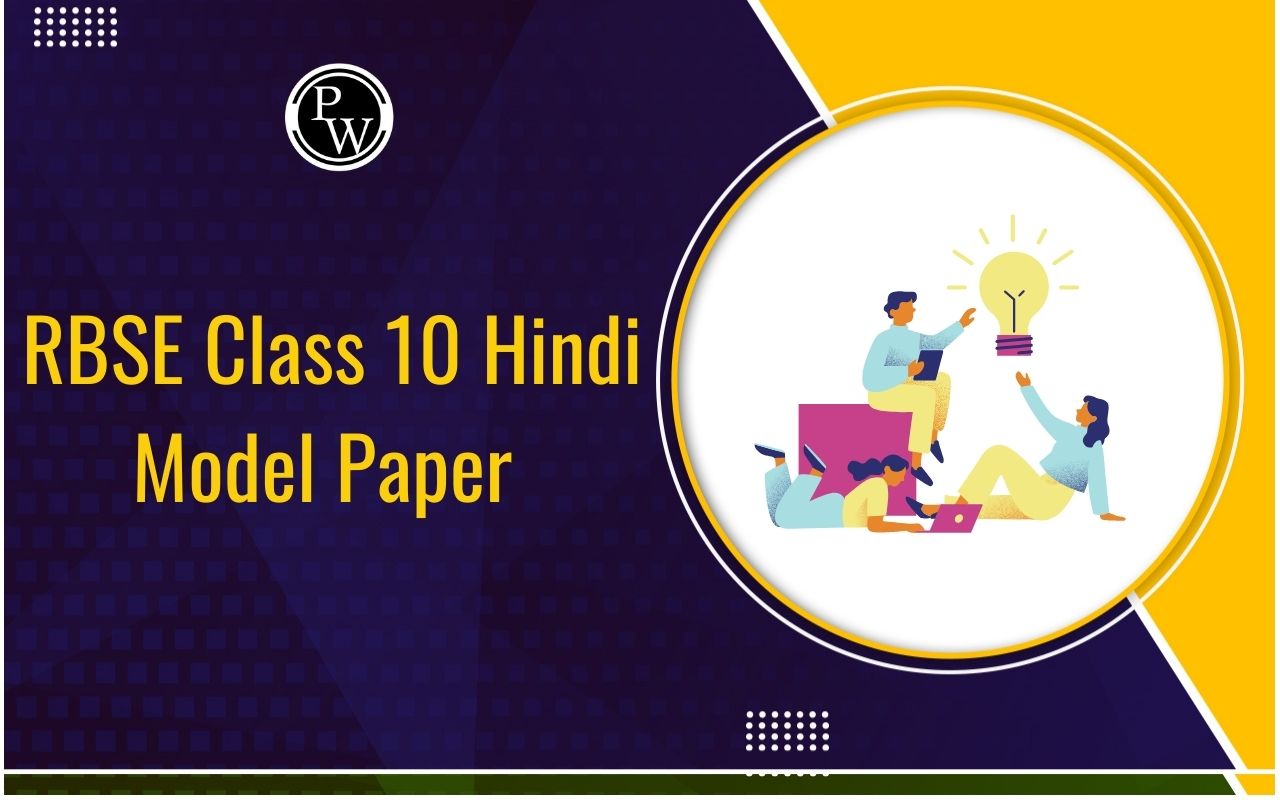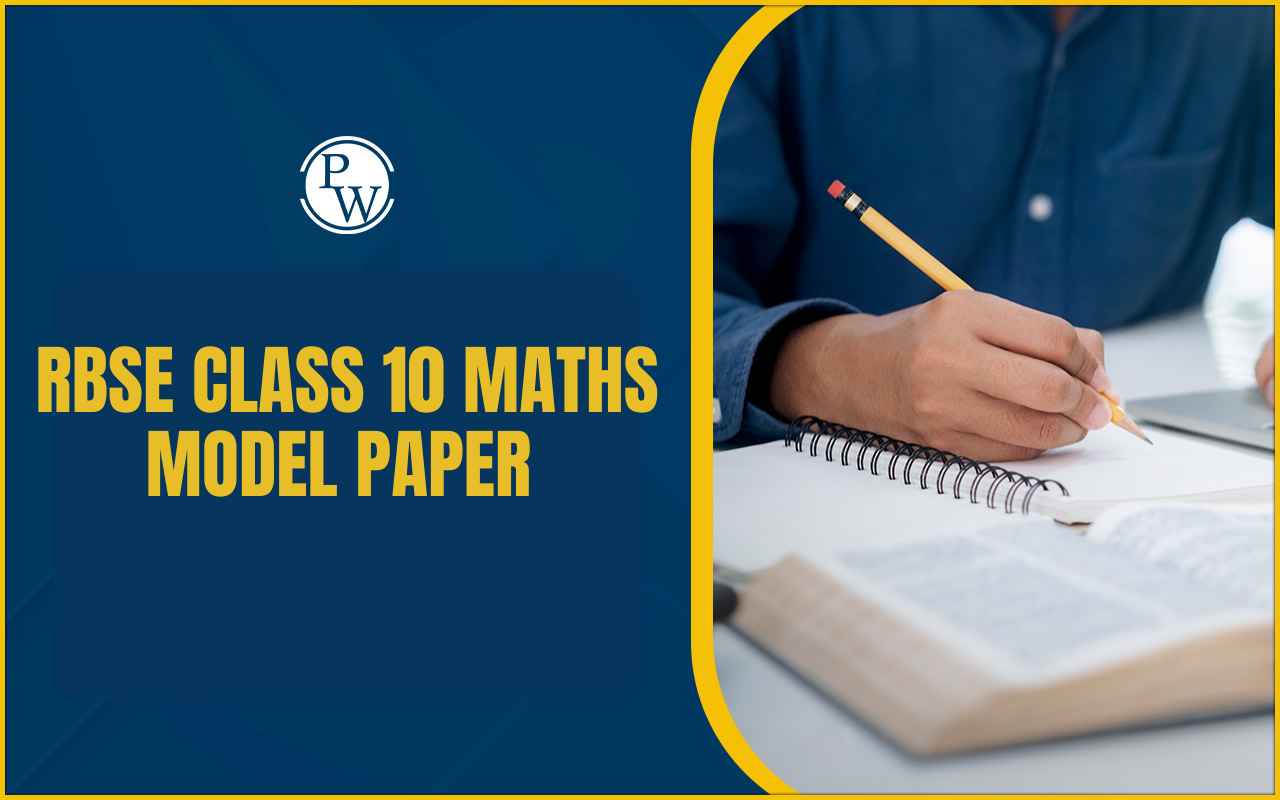
RBSE Class 10 English Syllabus 2025-26: The Rajasthan Board of Secondary Education (RBSE) has released the official syllabus for the academic year 2025-26 for all the subjects and language papers in a combined PDF to help students understand the marking scheme, exam pattern all at one place.
The RBSE Board follows the NCERT curriculum, setting a strong background and preparing students for higher studies. The English syllabus focuses on both literary and grammar sections, allowing students to develop reading, writing, and communication skills while also building a deeper understanding of the language through literature.
RBSE Class 10 English Syllabus 2026
The RBSE Class 10 English Syllabus 2026 focuses on the aspect that students must thoroughly understand the foreign language i.e., English. The syllabus is divided into two categories– English Literature and Language, each carrying a certain number of marks.
The English Literature section is included in the syllabus to help students develop analytical and interpretative skills. It allows students to develop a deeper understanding of prescribed literary texts, including themes, character development, and literary techniques. It develops an understanding of important literary works and writers.
The English Language section focuses on grammar, sentence-making, and writing skills. It helps students use correct English in speaking and writing. This section also includes practice in comprehension and different writing formats to build clear communication skills.
As far as the syllabus marks is concerned, the subject is divided into:
-
Written Exam: 80 marks
-
Internal Assessment: 20 marks
RBSE Class 10 English Syllabus 2026 PDF Download Link
RBSE Class 10 English Syllabus 2026 PDF gives students a complete preparation strategy. It provides all the information regarding the marking scheme, exam pattern, and the exam duration. Students can use the syllabus to track their performance by keeping a check on which topics are completed and which are left to be prepared. To download the English syllabus, a PDF has been attached below:
RBSE Class 10 English Syllabus 2025-26
Study without using the internet
RBSE Class 10 English Syllabus 2026 Marking Scheme
RBSE Class 10 English Syllabus 2026 Marking Scheme is given in the syllabus to help students understand and prioritize important and high weightage topics. Students must give importance to sections carrying higher marks like the Reading Comprehension and Textbook chapters’ analysis.
The exam pattern is also released by the Rajasthan Board, giving a clear picture of the types of questions students need to answer in the exam.
Each section focuses on a specific skill, a student must develop to have a strong understanding of the English language. Like the Reading section allows students to understand unseen passages, find answers from the text, and learn how to read quickly and carefully. It also improves critical and problem-solving skills.
The Writing section teaches students how to write clearly and correctly. They learn how to write letters, stories, reports, and other useful things.
The Grammar part helps students write and speak English correctly by teaching them about tenses, sentence structure, and word usage.
The textbooks: First Flight and Footprints Without Feet, include interesting stories and poems. These help students learn new words, enjoy reading, and understand different ideas and cultures.
All these sections together help students become better at English, not just for exams, but also for higher studies. Here’s the RBSE Class 10 English Syllabus 2026 Marking Scheme:
|
RBSE Class 10 English Syllabus 2026 Marking Scheme |
||
|
Areas of Learning |
Details |
Marks |
|
Reading |
Two unseen passages of total 400 words with a variety of questions including 4 marks for vocabulary. Passage 1 – 150 words (8 Marks): Eight Multiple Choice Questions including 2 questions on vocabulary—one testing the knowledge of similar word and the other testing the knowledge of opposite word. Passage 2 – 250 words (8 Marks): Eight Very Short Answer Type Questions including 2 questions on vocabulary—one testing the knowledge of similar word and the other of opposite word. |
16 |
|
Writing |
(i) Letter Writing – One out of two (a) Personal – To friends, relatives and members of family. (b) E-mail – To family, friends, relatives, Govt. officials, the editors of newspapers or magazines, teachers, Principal and so on. (4 marks) (ii) A short story on a given outline in about 100 words. (4 marks) (iii) A short writing task based on a verbal or a visual stimulus with internal choice in about 100 words. (4 marks) |
12 |
|
Grammar |
6 Fill in the blanks type questions and 4 very short answer type questions involving the use of particular structures within a context. The Grammar syllabus will include the following areas for teaching— 1. Tenses – 4 marks 2. Subject-Verb Concord – 2 marks 3. Clauses (Complex Sentences) – 2 marks 4. Active and Passive Voice – 1 mark 5. Reported Speech – 1 mark |
10 |
|
Text Book: First Flight – Prose |
(a) One out of two extracts from different prose lessons included in the textbook. Approximately 150 words each with the following type of questions— • 4 Multiple Choice Questions and 2 Very Short Answer Type Questions testing comprehensive ability. (6 marks) (b) Three Short Answer Type Questions (out of four, around 20–30 words each) excluding Drama Text. (3×2 = 6 marks) (c) One out of two Long Answer Type Questions extrapolative in nature based on any one of the prose lessons excluding Drama Text from the textbook to be answered in about 60 words. (3 marks) (d) One out of two Long Answer Type Questions on Drama Text (local and global comprehension question) in about 60 words. (3 marks) |
18 |
|
Text Book: First Flight – Poetry |
(a) One out of two extracts from the poems prescribed to test comprehension and appreciation with 1 Multiple Choice Question and 2 Short Answer Type Questions. (5 marks) (b) Two out of three Short Answer Type Questions on interpretations of themes and ideas contained in the poems to be answered in about 20–30 words each. (4 marks) (c) One out of two Long Answer Type Questions on interpretations of themes and ideas contained in the poems to be answered in about 60 words. (3 marks) |
12 |
|
Supplementary Reader: Footprints without Feet |
(a) One out of two Long Answer Type Questions from Supplementary Reader to interpret, evaluate and analyse characters, plot or situations occurring in the lessons to be answered in about 60 words. (4 marks) (b) Two out of three Short Answer Type Questions on interpreting and evaluating nature based questions to be answered in 20–30 words each. (4 marks) (c) Five Multiple Choice Questions testing factual aspects of the lessons. (4 marks) |
12 |
|
Total |
80 |
|
The Practical Assessment is further divided into an internal assessment of 10 marks, project for 3 marks, attendance for 5 marks, testbook and oral test for 1 marks each.
RBSE Class 10 English Syllabus 2026 Prescribed Textbooks
Students must follow the textbooks prescribed by the Rajasthan Board. These books are according to the latest syllabus and follow the NCERT curriculum to help students build a strong foundation in English language and literature.
The two main textbooks prescribed for Class 10 English and mentioned in the syllabus are:
-
First Flight: This is the main textbook for English Literature, published by NCERT. It includes a variety of prose and poetry selections that help students understand literary themes, character development, and language use in context.
-
Footprints Without Feet: This is the supplementary reader, also published by NCERT. It contains a selection of short stories that aim to improve reading comprehension and analytical skills.
How to Prepare for RBSE Class 10 English Exam 2026?
Students must follow the RBSE Class 10th preparation tips 2026 in order to prepare for the board exams. Here are some tips to prepare for the English exam:
-
As the RBSE board has prescribed the NCERT books, prepare for the board exams from them only. Read carefully line by line, underline important phrases, and try to understand the theme, characters, and message. Most of the questions in the literature section come from the prescribed texts only.
-
Practice writing tasks like letters, emails, and short stories at least 15–20 minutes a day to improve your writing skills. Follow the formats taught in class and focus on clarity, grammar, and word limit to get full marks in the writing section.
-
Attempt RBSE previous year question papers and model papers as it will help you understand the exam pattern, marking scheme, and the types of questions. Solving them under timed conditions will help you improve your speed and accuracy.
-
Focus on understanding the grammar topics like tenses, clauses, voice, and reported speech as the grammar section is scoring and easy. Practice fill-in-the-blanks and short answer-type grammar questions in context.
-
To score well in the reading section, practice reading unseen passages regularly. Focus on improving your vocabulary, especially synonyms, antonyms, and word meanings.
RBSE Class 10 English Syllabus 2026 FAQs
What is the pattern of RBSE Class 10 exam 2025?
What is the passing marks out of 80 in RBSE Class 10?
What is the marking scheme of English class 10?
How many students pass RBSE?
Is class English 10 tough?

